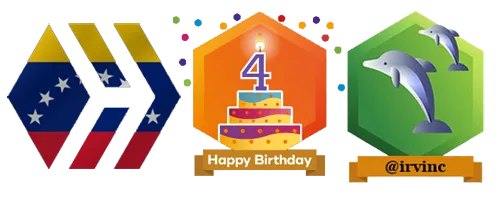
Desde los inicios del pensamiento filosófico se han creado diferentes teorías para explicar la existencia o no de la realidad. Algunos sostienen que hay una realidad independiente de cada sujeto y hay quienes, por el contrario, llegan a decir que todos vivimos en una especie de ilusión, y que la realidad solo es una construcción individual y subjetiva; siendo las cosas así sería imposible hablar de una realidad común para todos.
Tomar partido por alguno de los bandos, o buscar alguna salida intermedia no es un asunto banal y sería un gran error tratar de despacharlo de forma superficial.
Mientras más se investiga en la neurociencia más se confirma que nuestra idea de realidad es el resultado de un proceso que parte de impresiones sensoriales, que luego son procesadas y organizadas, a velocidad de vértigo, por nuestro cerebro. De ese modo vamos construyendo en nuestra mente una especie de película que al final llamaremos realidad.
El problema es que los sentidos son diferentes para cada quien, pasa igual que con las huellas digitales, no hay dos sujetos que los tengan configurados del mismo modo, por lo que no habrá dos sujetos que puedan percibir de la misma manera. Eso aplica para cuestiones simples, como un tono de color, habrá tantos matices de verde como sujetos los vean, y si se han criado en el trópico más. Y también aplica esa gran diferenciación perceptiva para situaciones mucho más complejas donde intervengan ideas religiosas, y códigos morales o éticos.

Es por esto que en nuestros días ha tomado tanta importancia el relativismo, llegándose a afirmar cosas como “todo es según el cristal con que se mire” o “cada cabeza es un mundo”. Según estos planteamientos no se podría hablar de una realidad común.
Para sostener ese punto de vista del relativismo se podría hacer un experimento muy sencillo como simular un accidente entre una moto y un carro en una esquina concurrida, luego pedirles a las personas presentes que cuenten lo que pasó. Cada sujeto dependiendo de su ubicación y de lo que estuviera haciendo en ese momento contará una versión diferente del mismo suceso. Esto no es una invención. ¿Pero nos permite llegar a la conclusión que la realidad no existe sino que depende de la percepción del sujeto…?
La gran dificultad para ponernos de acuerdo ha hecho necesario la creación de consensos, de ese modo podemos aceptar que alguna situación la consideremos positiva o negativa. Por muy relativista que seamos sería extremadamente temerario afirmar que en este momento no existe una guerra entre Rusia y Ucrania. Por muy relativista que seamos difícilmente pudiéramos decir que esa misma guerra lejos de ser una tragedia, por la cantidad de daños humanos y materiales que produce, sea una fiesta.
Sirva este preámbulo para introducir la interesante pregunta de Marty Rubin, que nos dejan para la reflexión los amigos de @humanitas:“La existencia de las cosas no depende de la existencia de las palabras”

Como siempre, cuando se trata de este tipo de planteamientos las respuestas no son fáciles. La pregunta se concibe desde una perspectiva donde se entiende la realidad como una situación objetiva, por lo tanto tiene existencia independiente de los sujetos, no importa que no haya ningún sujeto que la nombre, ella existe por sí misma.
Pudiéramos ilustrar esta idea con ejemplos muy sencillos: La mayoría de las personas desconocen la existencia de HIVE. Le nombras esa palabra y para ellos no significa nada, sencillamente en su mente no existe. Lo que no conocemos sencillamente no existe. Sin embargo, aunque miles de millones de personas en todo el mundo no sepan que es HIVE eso no significa que el sitio no exista, de hecho este escrito está publicado allí.
En este mismo momento pudiera haber en algún rincón del Universo alguna forma de vida completamente desconocida, que puede tener miles de años de existencia, que si estuviéramos ante ella ni siquiera sabríamos como nombrarla. Y el hecho de que no la conozcamos y no tengamos palabras para referirnos a ella no significa que no exista.
Pero habría otro asunto a considerar. El mundo humano es un mundo de símbolos, y allí las palabras son fundamentales. Si toda la realidad llega a nosotros como una construcción de nuestro cerebro. Si la única forma que tenemos para poder comunicar nuestras experiencias es a través de la palabra. ¿De qué realidad pudiéramos hablar si no tenemos palabras para nombrarla…? El asunto no es ubicarnos en el nivel de la abstracción, sino en lo que tiene sentido o no para nuestra especie.
He disfrutado mucho escribiendo la publicación, agradezco a los amigos de @humanitas su invitación a pensar. Invito a la amiga @slwzl para que nos dé a conocer su opinión sobre el tema.
Gracias por tu tiempo.


Since the beginning of philosophical thought, different theories have been created to explain the existence or non-existence of reality. Some argue that there is a reality independent of each subject and there are those who, on the contrary, come to say that we all live in a kind of illusion, and that reality is only an individual and subjective construction; things being so, it would be impossible to speak of a common reality for all.
Taking sides, or looking for some intermediate solution is not a trivial matter and it would be a great mistake to try to dismiss it superficially.
The more neuroscience research is done, the more it is confirmed that our idea of reality is the result of a process that starts from sensory impressions, which are then processed and organized, at breakneck speed, by our brain. In this way we build in our mind a kind of movie that we will eventually call reality.
The problem is that the senses are different for each person, as with fingerprints, no two subjects have them configured in the same way, so no two subjects can perceive in the same way. This applies to simple matters, such as a color tone, there will be as many shades of green as subjects see them, and if they have been raised in the tropics, even more. And this great perceptual differentiation also applies to much more complex situations involving religious ideas, and moral or ethical codes.
This is the reason why relativism has become so important nowadays, with statements such as "everything depends on how you look at it" or "each head is a world". According to these approaches, it would not be possible to speak of a common reality.

To support this point of view of relativism, a very simple experiment could be carried out, such as simulating an accident between a motorcycle and a car on a busy corner, and then asking the people present to tell what happened. Each subject, depending on their location and what they were doing at the time, will tell a different version of the same event. This is not an invention, but does it allow us to conclude that reality does not exist but depends on the subject's perception...?
The great difficulty in reaching agreement has made it necessary to create consensus, so that we can accept that we consider a situation to be positive or negative. However relativistic we may be, it would be extremely reckless to affirm that at this moment there is no war between Russia and Ukraine. However relativistic we may be, it would be difficult to say that this same war, far from being a tragedy, due to the amount of human and material damage it produces, is a celebration.
Let this preamble serve to introduce Marty Rubin's interesting question, which the friends of @humanitas leave us for reflection: "The existence of things does not depend on the existence of words".
As always, when it comes to this kind of approaches the answers are not easy. The question is conceived from a perspective where reality is understood as an objective situation, therefore it has an existence independent of the subjects, it does not matter that there is no subject to name it, it exists by itself.
We could illustrate this idea with very simple examples: Most people are unaware of the existence of HIVE. You name it that word and for them it means nothing, it simply does not exist in their mind. What we do not know simply does not exist. However, even if billions of people around the world do not know what HIVE is, it does not mean that the site does not exist, in fact this writing is published there.

At this very moment there could be in some corner of the universe some completely unknown life form, that may be thousands of years old, that if we were faced with it we wouldn't even know how to name it. And the fact that we do not know it and have no words to refer to it does not mean that it does not exist.
But there would be another matter to consider. The human world is a world of symbols, and there words are fundamental. If all reality comes to us as a construction of our brain. If the only way we have to communicate our experiences is through words, what reality could we talk about if we have no words to name it...? The point is not to place ourselves on the level of abstraction, but on what does or does not make sense to our species.
I really enjoyed writing the post, I thank the friends at @humanitas for their invitation to think. I invite friend @slwzl to let us know her thoughts on the subject.
Thanks for your time.
Translated with www.DeepL.com/Translator (free version)







Te invito a apoyar este proyecto como witness y a formar parte de esta gran comunidad uniéndote a su Discord en el siguiente enlace:
Discord de la comunidad Cervantes

You can vote for @ocd-witness, with HiveSigner or on Hive Witnesses.

